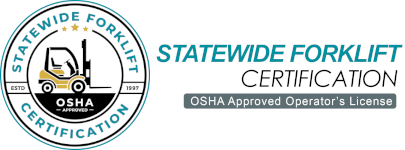The Benefits of a “Forklift Train the Trainer” Program
Forklifts, with their ability to lift, move, and transport heavy materials, are indispensable in many industries. However, their operation requires skill, awareness, and expertise, not only for efficiency but, more importantly, for safety. This is where a “Forklift Train the Trainer” program becomes invaluable. By training selected employees to become certified trainers, organizations can ensure that safety and operational standards are consistently met. Here are the numerous benefits of such a program:
Cost-Efficiency:
Conducting training in-house can significantly reduce costs in several ways. Organizations save on expenses related to outsourcing training, including travel, accommodation, and service fees. By having an internal trainer, companies can also schedule sessions as per their convenience, avoiding production downtimes.
Tailored Training:
Every workplace has its unique environment, equipment, and operational nuances. An in-house trainer, being familiar with these specifics, can tailor the training content to address the exact needs and challenges of the organization. This ensures that training is not just generic but is highly relevant and applicable
Enhanced Safety:
Safety is paramount in forklift operations. Trainers who are deeply familiar with the organization’s safety protocols and potential site-specific hazards can ensure that new operators are well-prepared to handle real-world challenges. This reduces the risk of accidents, protecting both personnel and property.
Continuous Improvement:
A trained trainer remains a part of the organization, providing an opportunity for ongoing feedback and improvement. They can identify recurrent issues, suggest solutions, and adjust training modules as required. This ensures that the training remains up-to-date and effective in the face of changing needs and technologies.
Building a Safety Culture:
Having an internal forklift trainer sends a clear message to the entire workforce: the organization is deeply committed to safety and skill development. This can foster a culture where safety is prioritized, and employees are encouraged to continuously upgrade their skills.
Flexible Scheduling:
Outsourced training programs often have fixed schedules that might not always align with an organization’s needs. In-house training, on the other hand, offers the flexibility to conduct sessions at times that are most convenient, ensuring minimal disruption to daily operations.
Consistency in Training:
With a dedicated trainer, companies can maintain a consistent standard of training across all sessions and batches of employees. This uniformity ensures that every operator has the same foundational knowledge and skillset, leading to predictable and standardized operations.
Building Organizational Expertise:
Investing in a “Train the Trainer” program elevates the expertise within the organization. Over time, the company becomes less reliant on external sources for training and can become a knowledge hub, enhancing its reputation in the industry.
Employee Development and Job Satisfaction:
Selecting an employee for the “Train the Trainer” program can be seen as an endorsement of their skills and commitment. This can act as a morale booster, providing avenues for career growth and development. Such initiatives can also improve job satisfaction and retention rates.
Prompt Onboarding:
For businesses that frequently hire new forklift operators or have a high turnover rate, having an in-house trainer can significantly expedite the onboarding process. New operators can be trained promptly without waiting for external training slots, ensuring that they become productive members of the team in a short span.
Reinforced Training:
An in-house trainer can provide refresher courses and address specific issues as and when they arise. This continuous reinforcement of training ensures that operators don’t fall into complacency or develop unsafe habits over time.
Regulatory Compliance:
Compliance with safety and operational standards is critical for avoiding legal complications and potential fines. An in-house trainer, aware of both industry standards and organization-specific protocols, can ensure that all training aligns with regulatory requirements.
Conclusion
A “Forklift Train the Trainer” program is more than just a training initiative; it’s an investment in safety, efficiency, and the future of the organization. By cultivating internal expertise and fostering a culture of continuous learning, companies can not only ensure the safe and efficient operation of forklifts but also enhance their reputation, employee satisfaction, and overall operational excellence. Whether viewed from a safety, financial, or operational perspective, the benefits of such a program are manifold and undeniable.
